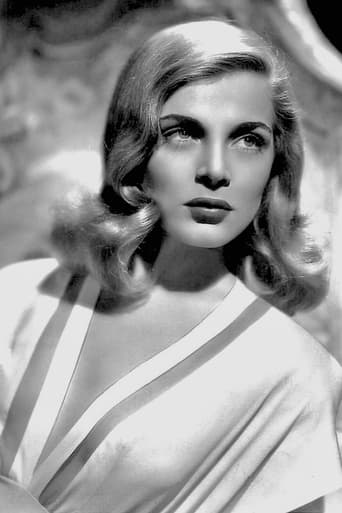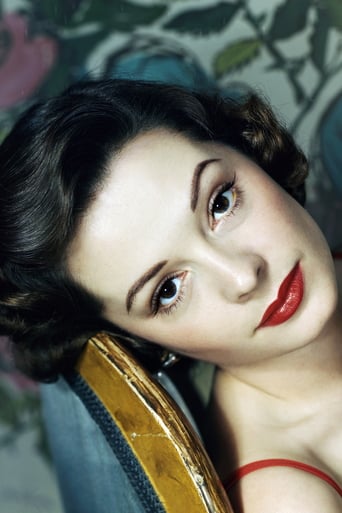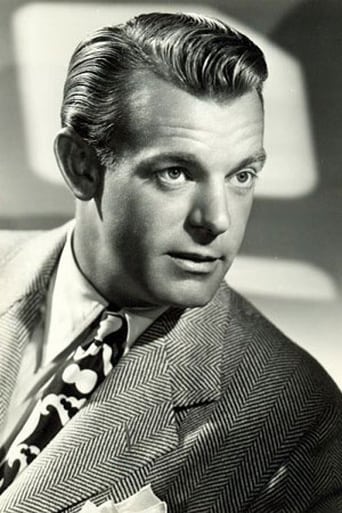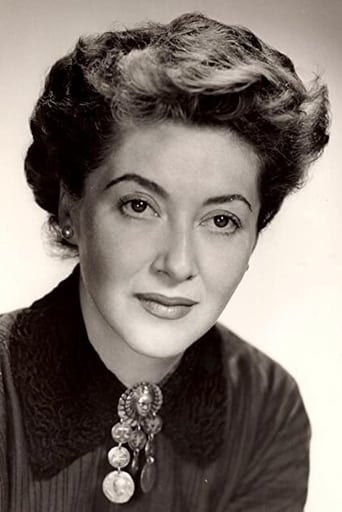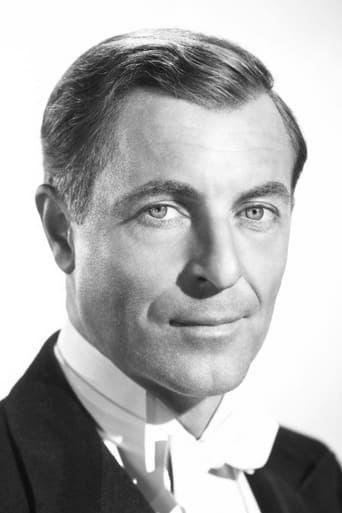CheerupSilver
Very Cool!!!
StunnaKrypto
Self-important, over-dramatic, uninspired.
Nicole
I enjoyed watching this film and would recommend other to give it a try , (as I am) but this movie, although enjoyable to watch due to the better than average acting fails to add anything new to its storyline that is all too familiar to these types of movies.
JohnHowardReid
It seems incredible that any man would prefer dowdy Jane Greer to stylish Lizabeth Scott, yet that is precisely O'Keefe's choice in this oddly miscast movie! Miss Scott seems a natural for the parolee part and Miss Greer would not have disgraced the role of parole officer. Yet the casting director has reversed this natural order of succession! Director John Cromwell is below form too. Admittedly, he was not helped by the soap opera script, though he does display some occasional flashes of brilliance in such scenes as the brutal police line-up, and the sequence in which O'Keefe describes the things two can do on the town, illustrated by brief snippets of O'Keefe and Greer in the action. Production values are otherwise up to standard.Some critics complained that the plot and its characters were novelettish and that the movie never came to grips with its subject matter. But personally I feel that's what movies are all about. They're not documentaries about real life. They present characters with which audiences can identify in a fictional world which seems realistic enough to engage viewers' attention. My quarrel is that in this case neither the characters nor plot developments seem quite credible.
dbdumonteil
SPOILERSWhen the movie begins ,we side with Diane/Mildred ,we pity her lack of luck,her miserable childhood;and we think that THAT lady (Mrs Wilburn) will tear her to pieces when she knows the truth about her love affair .The unfortunate ex-convict has fallen in love with her parole officer's squeeze!But it's not what you expect;in fact ,as the movie progresses,the parole officer's morale stature and dignity constantly grows and Lizabeth Scott ,in the second part ,really steals the show from talented Jane Greer.Dennis O'Keefe,on the other hand ,seems too old for the part of a young suitor.This is nonetheless a moving absorbing movie,with a subject which is still topical,even though it simplifies the matters.Recommanded
djensen1
I fell for Lizabeth Scott in Too Late for Tears, and she's delicious here as a tortured altruist. But it's Jane Greer as the broken dove who has a the limelight for the first two acts. The shades of gray--and green--make this a juicy little melodrama for both characters. Indeed, the lesbian tension is palpable in the beginning (and I didn't know about Scott's reputation), suggesting much more than the film makers may have intended (but, oh, what a movie this COULD have been...). Dennis O'Keefe is the weak link, looking older than his 43 years and strolling thru scenes without adding much flavor. Fay Baker is a nice addition as the tough girl that Greer might have been without the help she gets.
dougdoepke
Parole officer (Scott) and parolee Diane (Greer) compete for the same man (O'Keefe), creating conflict on several levels. At best, the movie's about the difficulties of being on parole.Oddball little programmer. Scott gets top billing, but as others point out, it's Greer who gets the screen time. And far from her usual slinky seductive role, she's not only de-glamorized, but also suitably dour-faced (just count her smiles; I stopped after one). All in all, it's a rather grim screenplay, drably photographed, and I can't believe the studio expected the final product to make money.Despite the romantic triangle that strains believability, there are several striking scenes. Catch the iconic 40's diner where Diane gets her bottom-of-the-barrel meals. The sweat and steam just about drip off the wall. And that police line-up-- a graphic cross-section of the city's tough cookies, down-and-out'ers, and hopelessly pathetic (& one of the few barfing scenes from that era)-- are all herded along by a bullying cop (Freed). It's one of the more unvarnished glimpses of urban flotsam and jetsam from the period. Then there's the crowded jail cell where the camera abandons Diane (& us) to a nightmare of entrapment. It's an unnerving moment, very well done. I would've liked the movie better had they made the triangle more credible, plus Scott's sacrificial character seems too good to be true. I expect the latter was RKO's effort at compensating for the harshness of the parole system as portrayed. Likely too, prestige producer John Houseman had something to do with the social realism phase, including the poignant overcoat episode. Anyway, reviewer bmacy's remarks on the influence of the previous year's Caged (1950) are on target. And, had this film carried through more with its realistic dimension, it might not be as obscure as it is.
